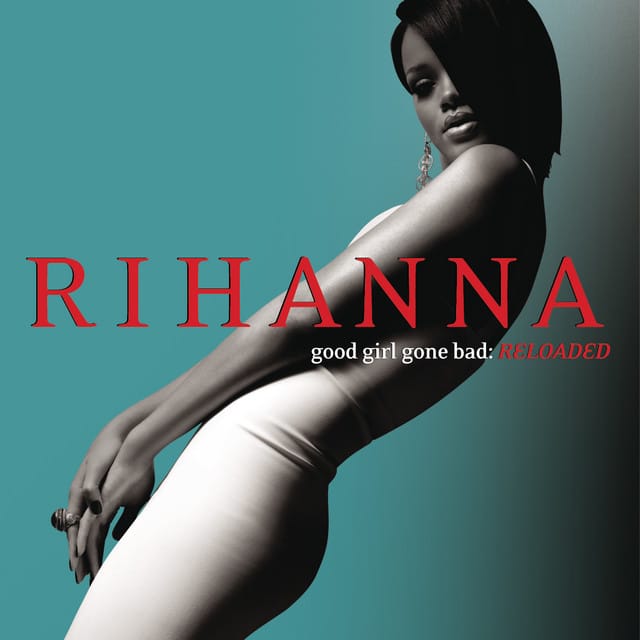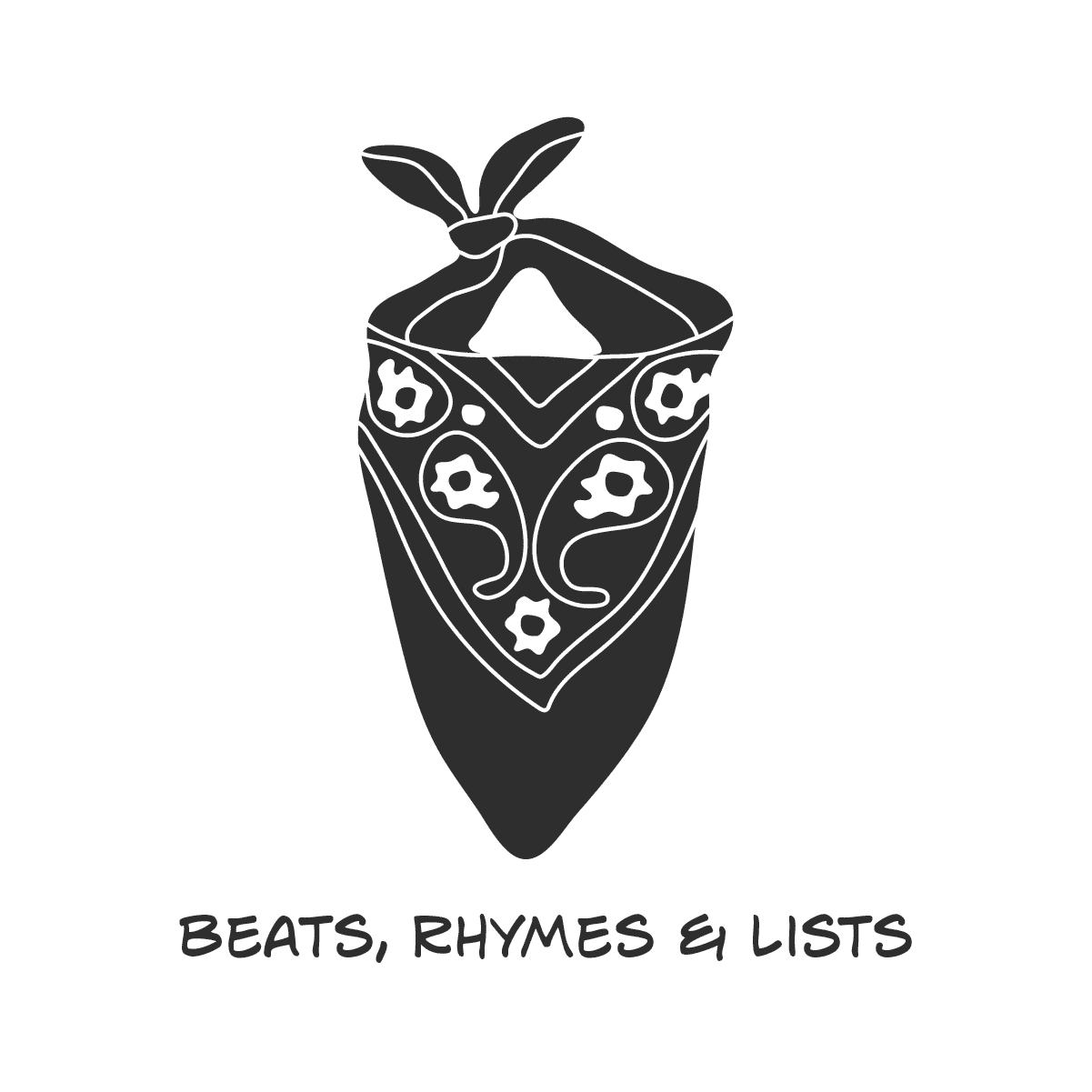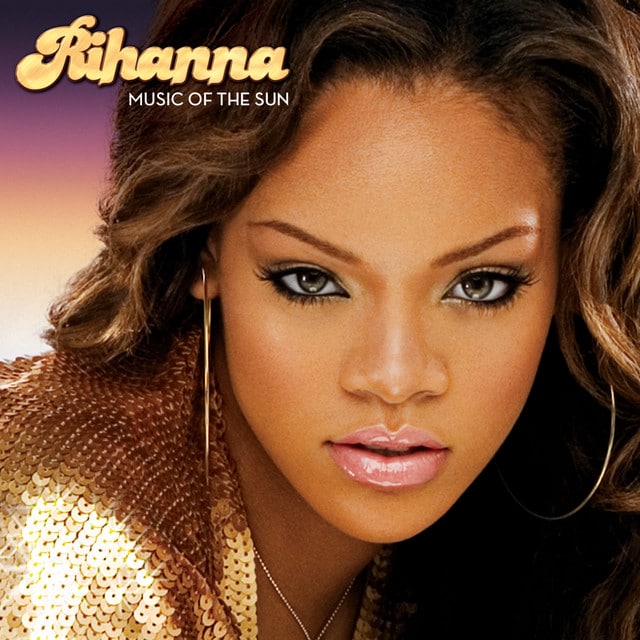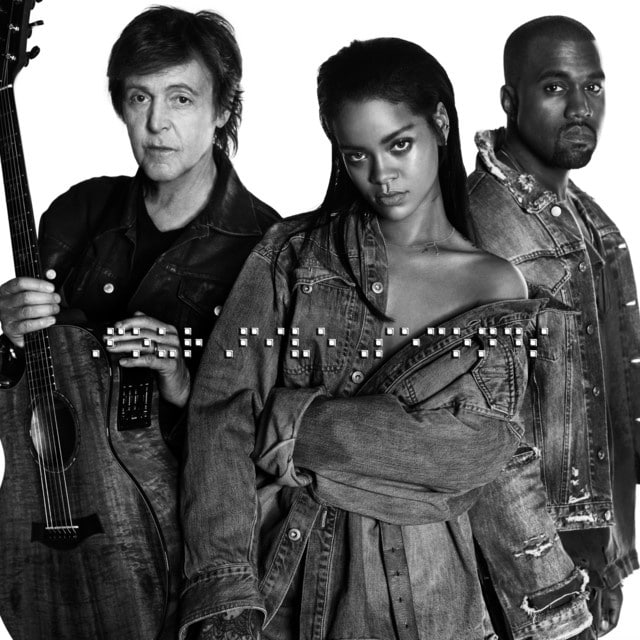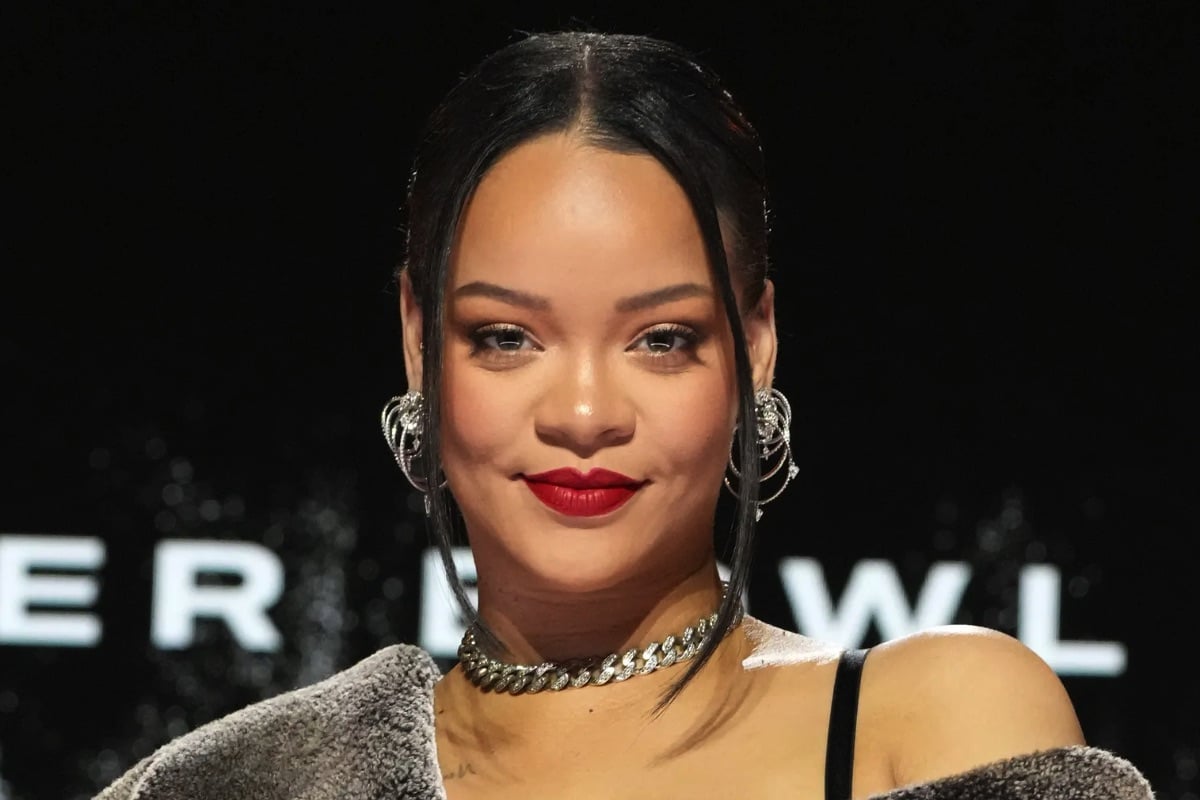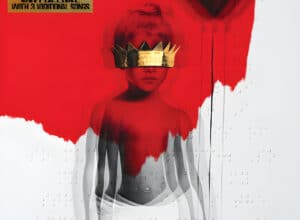Released: 2008
Label: Def Jam Recordings
Featuring: JAY-Z, Ne-Yo, Maroon 5
The hip-hop infused beats, pop sensibilities, and Caribbean tempo of Rihanna’s ‘Good Girl Gone Bad: Reloaded’ shook the music landscape in 2008 like a true lyrical earthquake. Rihanna, a Barbadian songstress, had already established herself as a hitmaker with previous albums, but this reloaded package was the game-changer that stamped her status as a global pop icon. This album served as a testament to RiRi’s diverse musical roots, showcasing a seamless blend of R&B, reggae, dance-pop, and balladry.
‘Good Girl Gone Bad: Reloaded’ saw Rihanna elevate her artistry to new heights. With hit tracks like ‘Umbrella’, ‘Don’t Stop The Music’, and ‘Disturbia’, Rihanna redefined the sound of contemporary pop music. Each song on the album was a journey into Rihanna’s artistic evolution, a sonic postcard from a rising star who was no longer content with just being the ‘good girl’. On this album, Rihanna demonstrated her considerable talent for traversing multiple genres while infusing them with her unique style.
This wasn’t just an album, it was a statement of intent, a defiant declaration woven into pulsating beats and potent lyrics. Rihanna was making it clear that she was here to claim her space in the music world, and she wasn’t asking for permission. Each track was a testament to her growing confidence, skill, and bold artistic choices. This work pushed boundaries, challenged conventions, and firmly put the ‘pop princess’ tag behind her.
So let’s get into it. From ‘Umbrella’ to ‘If I Never See Your Face Again’, here is the breakdown of the lyrics on ‘Good Girl Gone Bad: Reloaded’ by Rihanna.
1. Umbrella
When we dig into the lyrics, we can see why. The track is flooded with metaphors – an umbrella acting as a symbol of protection and support is a powerful message of unity. Rihanna, alongside Jay-Z, paints a picture of unwavering commitment, promising to stick around ‘in the dark’, ‘when the sun shines’, and ‘when it’s raining more than ever’. Even the repeating ‘-ella, -ella’, added to the word ‘umbrella’, creates an infectious rhythm that is complemented by the undeniable sense of solidarity in the lyrics. Beyond its catchy hook and danceable beat, “Umbrella” stands as a testament to Rihanna’s maturation as a lyrical mastermind.
2. Push Up On Me
The lyrics bring to life the narrative of a woman deliberately enticing a man, using the pulsating rhythm to underscore her certainty and self-possession. Rihanna isn’t your average damsel; she got flavor and isn’t afraid to entice and intrigue. The repeated chorus “I wish you would push up on me” speaks volumes about her unabashed desire and empowerment, a direct challenge to the usual trope of women playing coy in the game of love. This jam serves as a bold endorsement of womanly autonomy and desire, establishing Rihanna as a fearless queen in the hip-hop world.
3. Don’t Stop The Music
Rihanna’s assertive vocals fuse with the pulsating beats, giving the track a hypnotic energy that resonates with dance floors worldwide. The lyrics create a vibrant picture of nocturnal escapism, wrapped in rhythms and enchanting aura. The enigmatic refrain “Mama-say, mama-sa, ma-ma-ko-ssa,” borrowed from Michael Jackson’s “Wanna Be Startin’ Somethin’,” pays homage to the King of Pop and underscores her Caribbean roots. This track demonstrates Rihanna’s ability to breathe new life into familiar pop structures, making them undeniably her own.
4. Breakin’ Dishes
It’s as if RiRi flips that old saying, “hell hath no fury like a woman scorned.” The lyrics are raw, encapsulating the frustrating situation of being left to wonder and worry by an inattentive partner. Through a blend of metaphorical and literal references to damaging household items, Rihanna illustrates that tipping point where resentment bubbles over into outright rebellion. The repetitive use of “I’ma fight a man tonight” surges as a lyrical war-cry, underlining a woman’s resolve to confront and challenge. It’s not just about breaking dishes, it’s about breaking the cycle of disregard and disrespect.
5. Shut Up And Drive
It’s a full-throttle cut, simmering with car-themed innuendos that infer romantic pursuit and allure, buoyed by a hook that’s unapologetically infectious. With Rihanna in the driver’s seat, she navigates a joyride filled with alluring curves and tantalizing speed. The Barbadian singer offers up her version of high-speed love, doused in confidence and playful sass. It’s a testament to Rihanna’s versatility, as she effortlessly straddles pop-rock soundscape while maintaining her core R&B ethos. “Shut Up And Drive” is a testament to the artist’s audacious spirit and solidifies ‘Good Girl Gone Bad: Reloaded’ as a pivotal turn in her sonic journey.
6. Hate That I Love You
The lyrics describe an intense conflict, a love so deep it cultivates frustration. The realness lies in the depiction of the complexity of love, its intoxicating spell that ties you to someone, even when they trigger a spectrum of emotions. Suggestive of the rollercoaster ride that relationships can be, Rihanna shows us that love isn’t just sunshine and rainbows, but a raw, turbulent force. This track reinforces her versatility not only as an artist but as a storyteller unafraid to explore the shadows of affection.
7. Say It
The lyrics are a conversation, an ultimatum even, demanding openness and honesty. It’s classic Rihanna – she’s vulnerable while maintaining her authoritative demeanor. The pleas to ‘say it’ is a reflection of a new age relationship impasse, with the fear of the unsaid being a major theme. The cloak and dagger games in relationships are seen as damaging, reflecting a broader move towards emotional transparency in hip-hop—which has historically been a genre that sometimes glosses over such intimacy in favor of bravado and posturing. This track from ‘Good Girl Gone Bad: Reloaded’ showcases Rihanna’s evolution as an artist, both vocally and in her lyricism, as she continues to break boundaries within the music industry.
8. Sell Me Candy
The lyrics paint a picture of longing, temptation, and intimacy, conveyed through metaphoric references to candy and transactional language. Ms. Fenty’s playfulness shines through, as she tempts and teases, wrapping her desires in a colorful candy-coated package. She makes it clear that she’s buying what her man is selling – a fantasy she’s more than willing to indulge in. This joint, make no mistake, is a signature RiRi joint, blending sweetness with a steely edge that’s undeniably entrancing.
9. Lemme Get That
Her lyrics spill over with premium brands, high-end commodities, and abundance – all material representations of status, power, and aspirations. But Rihanna flips the script and reasserts her independence – she doesn’t need a man, but if he’s buying, she’s not turning it down. She justifies it with stark honesty – she’d love him the same, even without all the Gucci. This song is more than a mere celebration of wealth and materialism, it’s Rihanna’s own nuanced take on gender roles, financial independence, and modern love in a material world.
10. Rehab
The lyrics unfold a tale of addiction – not to narcotics, but to love. Riri redefines ‘rehab’ as a detoxification process from toxic love, and the narrative of draining relationship is magnified with clever wordplay and evocative imagery. This joint paints a picture of a love-struck Rihanna battling the aftermaths of a heart-wrecking breakup, channeling raw emotions into a track that hits home for anyone who’s ever felt strung out on love. It is Rihanna’s powerful performance that brings the whole piece alive – a testament to her knack for transforming personal adversity into universally relatable anthems.
11. Question Existing
She’s asking the real questions, bracing against the relentless scrutiny, stripping down to her human flaws, and shattering the illusion of superstar invincibility. It’s in these moments of vulnerability that Rihanna solidifies her connection with listeners, reminding us all that beneath the stardom she’s just like us – incredibly human.
12. Good Girl Gone Bad
Her lyrics echo a narrative of transformation and assertiveness, painting a tale of a woman who’s had enough of being mistreated and sidelined. The song sends out a clear warning not to underestimate her or take her for granted. Rihanna juxtaposes the innocence of a ‘good girl’ with the fierce independence and autonomy she gained when she broke free, an audacious move that chipped away at the ‘girl next door’ image. The lyric “easy for a good girl to go bad” is emblematic of Rihanna’s fierce stance on being respected and valued.
13. Disturbia
The catchy bum bum be-dum refrain is hypnotic and unsettling, underscoring the relentless drag of anxiety and fear in a world offering little respite or compassion. The lyrics cleverly illustrate the insidiousness of mental unrest; it’s a thief in the night, a disease of the mind that can control you. With this track, Rihanna constructs not just a cautionary tale, but an anthem for the disturbed and those dancing on the edge of sanity, urging us to put on our brake lights amid the wonder city of life. It’s hip hop, it’s R&B, but more than anything, it’s real.
14. Take A Bow
The lyrics serve as an indictment of a deceitful lover, with each word dripping in sarcasm and resentment. The metaphor of a play portrays the failed relationship as a performance, where her partner is the insincere actor who can’t admit his wrongs. The biting line “And the award for the best liar goes to you” emphasizes the level of duplicity. This offering from the Bajan queen showcases her ability to deliver emotionally charged narratives, solidifying her ascendancy in the hip-hop/R&B crossover realm.
15. If I Never See Your Face Again
Rihanna and Maroon 5’s Levine circle each other like boxers in a ring, their lyrics a verbal dance hinting at the complexities of a relationship teetering on the brink. It’s the inherent push-and-pull, the battle between longing and loathing that gives this song its edge. RiRi’s sultry tones blend cohesively with Levine’s smooth vocals, adding layers of emotional depth, as they express the paradox of desiring closeness while simultaneously yearning for distance. This duality—as serene as it is violent—paints a vivid picture of the blurred lines often seen in tumultuous relationships. Wrapped in dance-pop and funk rock, “If I Never See Your Face Again” is a true testament to the darker side of love.
